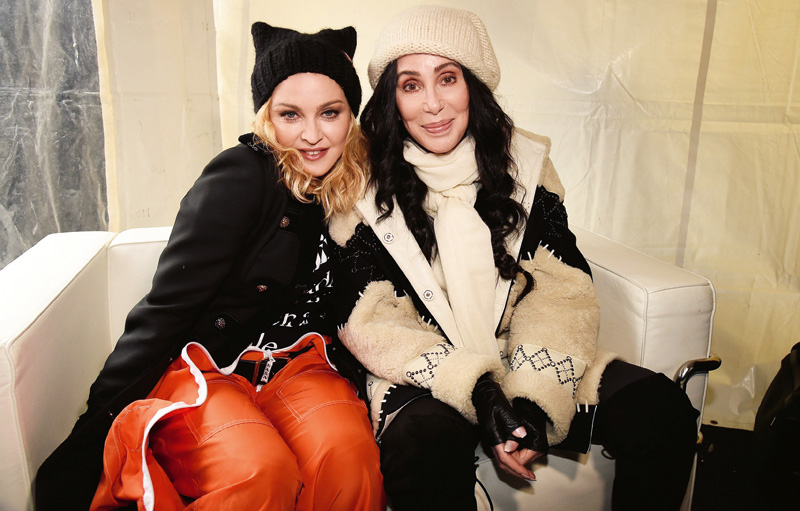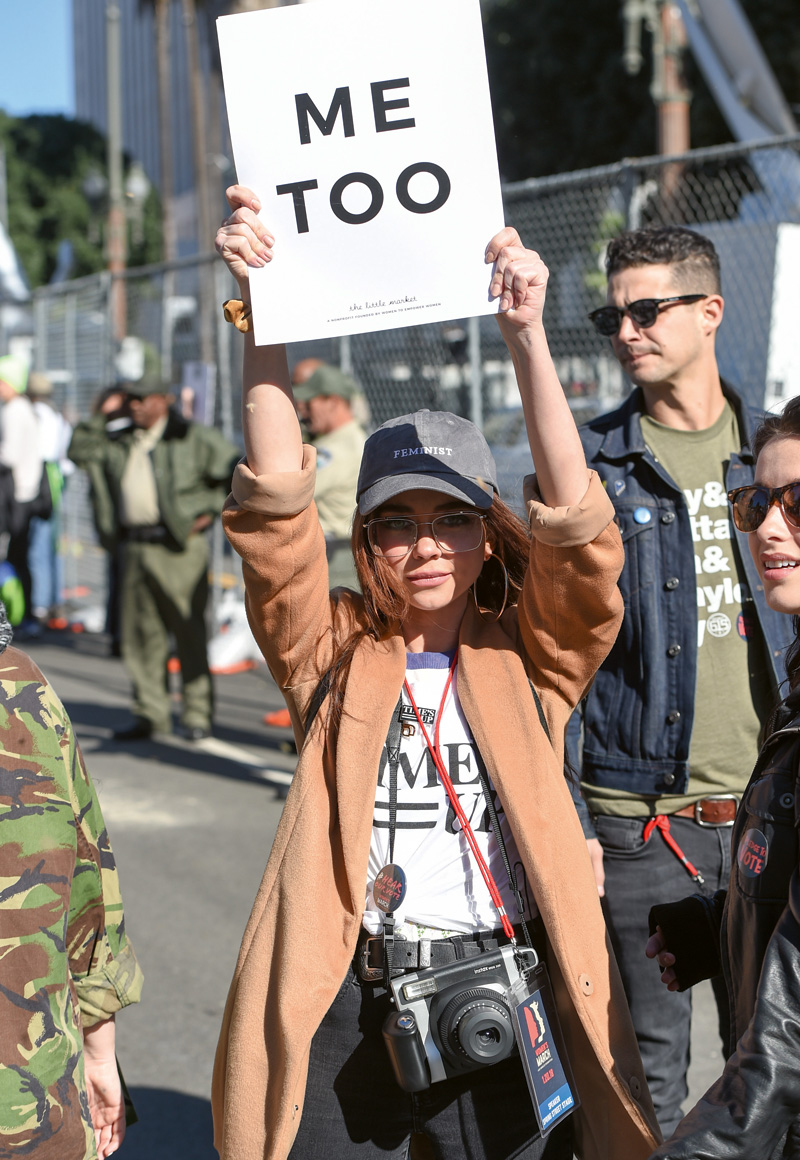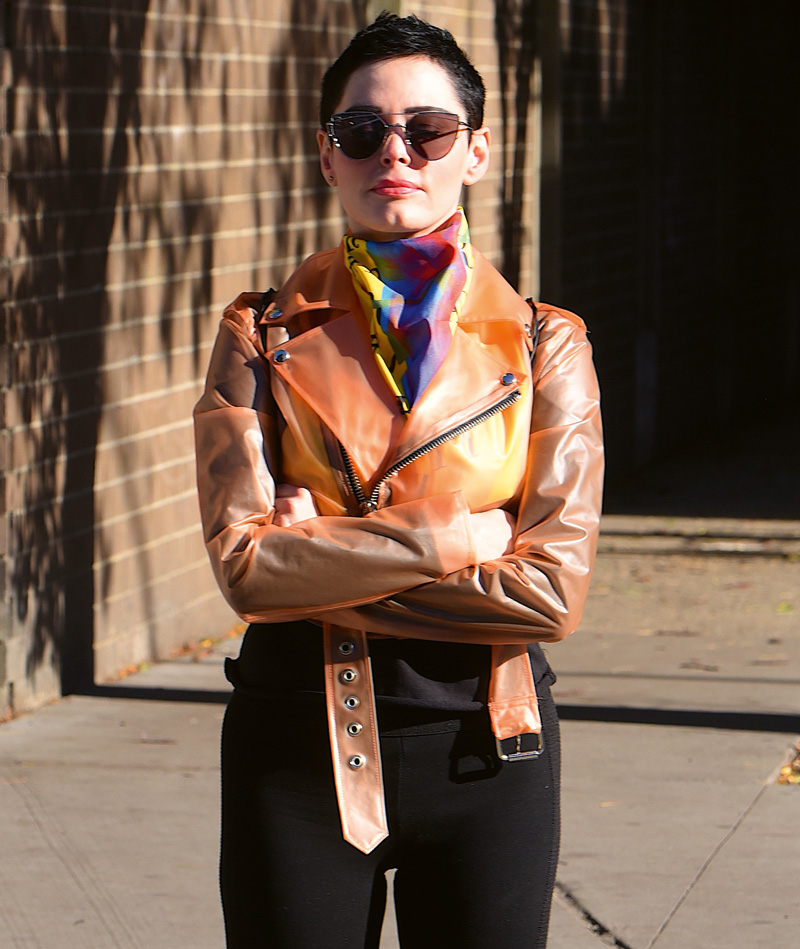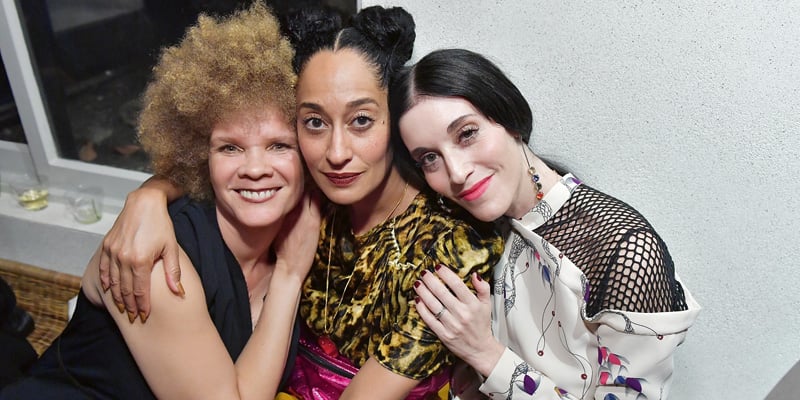How your mental health can benefit from the post-Weinstein zeitgeist with four words: ‘your life is yours.’
The global #MeToo movement that followed the public reckoning of Hollywood moguls and actors accused of systematic sexual abuse has brought the concept of ‘female agency’ to the fore.
A psychological term first used in the 1970s to describe the ability of individual women to exert power over their live’s circumstances, it’s become a buzzword for a new era in feminism.
Read:
Everything you need to know about the Met Gala 2018
Mariah Idrissi says she was dropped from a beauty campaign for her hijab
In a now-viral speech at Glamour’s 2017 Women of the Year Summit, Blackish actress Tracee Ellis Ross powerfully evoked the phrase when she described taking ownership of her own life with four little words.
“My life is mine. Those words stopped me in my tracks,” Ross said. “Because, yes, I’ve been living my life—but not to my own expectations. Not for me.”

Ross said that the words propelled her to stop looking at her life and accomplishments through the lens of society’s expectations and instead to acknowledge her own dreams, ambitions and even flaws in a celebratory way; to be proud of who she is and not to apologise for it.
As Ross put it, “I am going to own my experiences. I’m going to pay attention to the reality of my life and the audacity of my dreams instead of the expectation I was raised with. I’m going to make space for the good and the bad of it, even the yucky, scary, fear-inducing parts, and embrace all the bits and all the questions.”
The good girl paradox
It sounds simple, right? But when you start to examine the societal constraints placed on women by what we are expected to be (polite, proper, modest, pretty, selfless, delicate…), it’s not hard to see why women have been struggling to take back control of their own life and agency.
Psychologist Dr Annie Crookes, a Professor at Heriot-Watt University in Dubai explains: “Society traditionally has preferred women to act and look a particular way compared to men – and this is conditioned through images, through how we talk and words we use and through our actions. For example, when a girl dresses up in frills and bows, people smile and praise her, but she does not get the same when she dresses down; women are routinely commented and praised on their physical attractiveness, even well-meaning parents will talk about how pretty a little girl is, but not use the same physical compliments for little boys.”

She adds: “Women take this in and understand at a deep level that good outcomes come from being modest, polite and pretty, and bad outcomes come from not meeting those expectations.” And when we don’t meet those external expectations placed upon us, it can have a devastating impact on our self-worth.
“Women can feel undervalued and unable to control the things that happen to them, or that they must hide how they want to act and be in order to meet ideals,” says Dr Crookes.
The struggle for perfection
One of the major stumbling blocks to finding your own agency is the ‘compare and despair’ social media phenomenon, where women compare themselves negatively to the ‘superwomen’ they see on social media. “Women, perhaps more than men, are told that their individual value comes from how well they compare to depictions of ‘perfect women’ in the media and on social media. Because recent generations of girls have grown up in this situation many adult women are now habitually self-critical; habitually noticing areas of failure rather than achievement in their lives; habitually comparing themselves with ideals in the media,” says Dr Crookes.
Finding the brave you
So, how can we get past this self-limiting behaviour? Look inside yourself, urges Dr Crookes. “Most of us are habitually focusing on what we need to improve rather than what we already have. And if this is our automatic mindset – one of flaws and corrections – it is not possible to dream big, and to have new and crazy ambitions.

“Also, because femininity is equated with being quiet and modest, it can be hard to push for your dreams, to fight for things or to shout when something stands in your way. We see this in the way that women executives and politicians are treated – to become a CEO you have to be ‘tough, strong, uncaring… manly’; you must give up your feminine side to be accepted as a leader,” says Dr Crookes. Thankfully, change is afoot: the #MeToo movement has shone a light on private and sensitive experiences that have held women back. “We see this reflected in other industries where women leaders are pointing out the inherent biases and encouraging girls to grow up knowing they can be anything,” says Dr Crookes.
Taking control of your own agency in this way is vital for your happiness. “In short, having a sense of being the agent of your actions; of being the director in your life story; of making small decisions for yourself, even if the rest of your life is out of your hands, this is at the very core of mental health,” says Dr Crookes.
It’s a condition Ross calls being ‘The Brave You’; a state she urges all women to strive for. “‘The Brave Me’ reminds me that I am complete just as me. Not in relation to anyone or anything else, just wholly, fully me. ‘The Brave You’ gives you the courage to hold your own agency. This beautiful, powerful part of you is just waiting for your invitaion.”
Images: Getty
Words: Aoife Stuart-Madge












